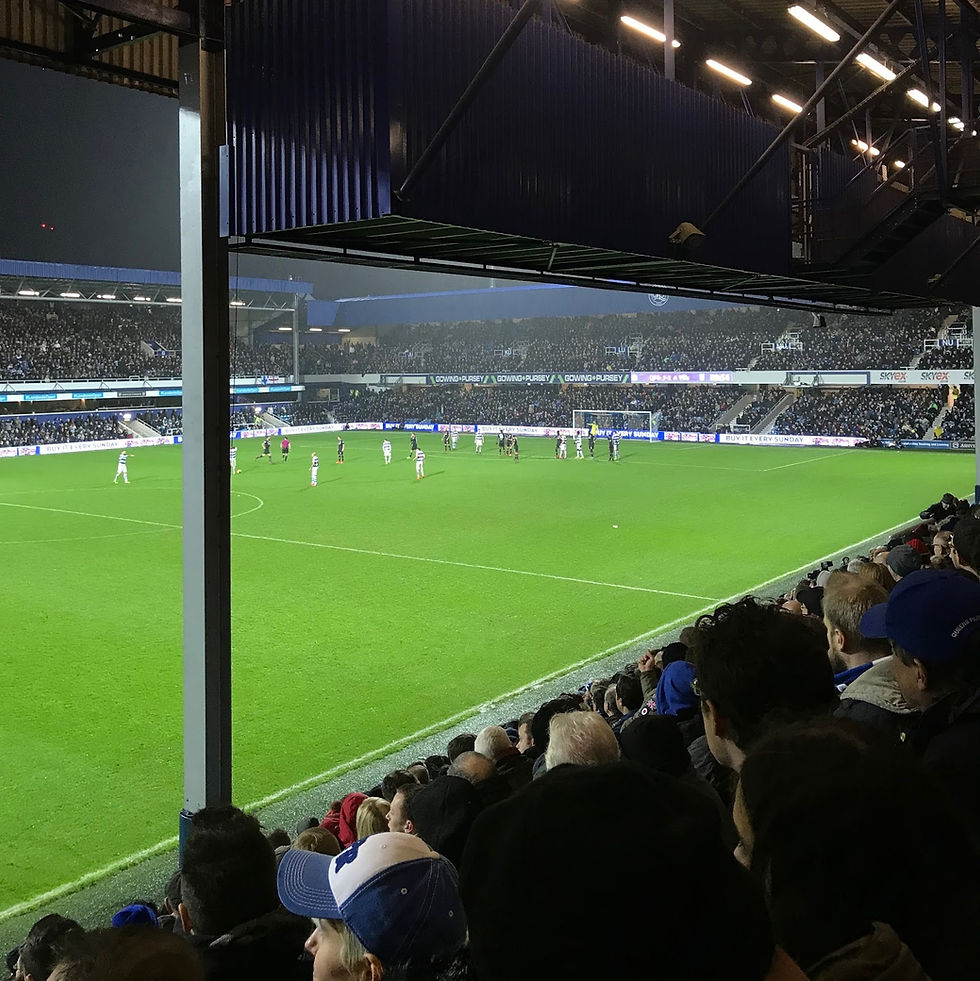Living for the Weekend: Leyton Orient
- Tomás S. Ó Ceallaigh

- Jan 24, 2015
- 3 min read

The professionals make falling off their bikes look so easy. The reality is hours of pain, blood and tears in Accident and Emergency, being told that you've fractured your cheekbone, need stitches and might have knackered your already knackered wrist.
It’s Saturday 10th January and, clearly sensing I needed to get out, my friend and fellow cyclist Jonesy has made his way over to E17. As a complete spur of the moment thing, we decide to head down to the Matchroom Stadium on Brisbane Road in Leyton to watch Orient take on Fleetwood Town.
It's been a while since I last saw a live match in a ground (the last time possibly being Aston Villa vs. Charlton) and so I assumed that all teams, regardless of position in the English football league pyramid, require some form of advanced booking. I spend around twenty minutes on the ticket hotline listening to a pre-recorded East End woman telling me my call is important to her before I give up.
We hop on the 158 bus for a few stops, wander down a few residential streets and find what would likely be non-existent at a premier league ground: a cash turnstile! For a princely £25, and a bit of manual effort getting through the vintage turnstiles, we've managed to bag two seats next to each other in the East Stand, just about on the halfway line.
Leyton Orient was originally founded in 1881 as Eagle Cricket Club, becoming Orient Football Club in 1888. Various permutations of the Orient name have been used over the years and it was only as late as 1987 that the name Leyton Orient was finally settled upon.

Despite being one of the oldest clubs in England, Orient's successes have been modest. They managed just one season in the top flight in 1962-63 and their furthest progress in the FA Cup is a semi-final defeat to Arsenal in 1978.
Orient's stadium at Brisbane Road has largely been rebuilt over recent years, with the exception of the East Stand. The East Stand was initially opened in 1957 and had some extra work done 1962 to extend the capacity further.
The moment you've fought with the rusty-looking old-fashioned turnstile you step back into a world that existed before all football stadia became a heap of soulless glass, plastic and concrete. The floor is wooden, there are roof supports in the way of some views of the pitch and there's only one tiny bar in the stand – but I love it.
The match itself was a reasonably tense affair, with small flurries of end-to-end action in the washed-out wintry sunshine. In reality, Fleetwood Town had the best of the chances in the first half and both Jonesy and myself began to feel the frustration of the regular Orient fans.
At half-time there was a bit of a scrum to get to the bar and the net result of it was missing the first few minutes of the second half – and subsequently the only goal of the game. Fleetwood Town’s Gareth Evans scored straight from the restart securing a 1-0 away victory for his side. Orient had a bucket load of chances in the second half, but all to no avail.
In the words of Orient’s defender, Scott Cuthbert, “We switched off and it was an easy goal for them and that's disappointing for us. It was one of those days – it was massively frustrating.”
So we may have missed the only goal of the game, but when the final whistle went, it was easy to make an escape onto a 158 bus and get home to the warmth once more.
Brisbane Road is well worth a visit. The intimacy of the setting and the seating’s proximity to pitch is simply something you wouldn’t get in a good many football grounds these days. I’ll hopefully be back again before too long.
For more information about Leyton Orient visit: http://www.leytonorient.com/






Comments